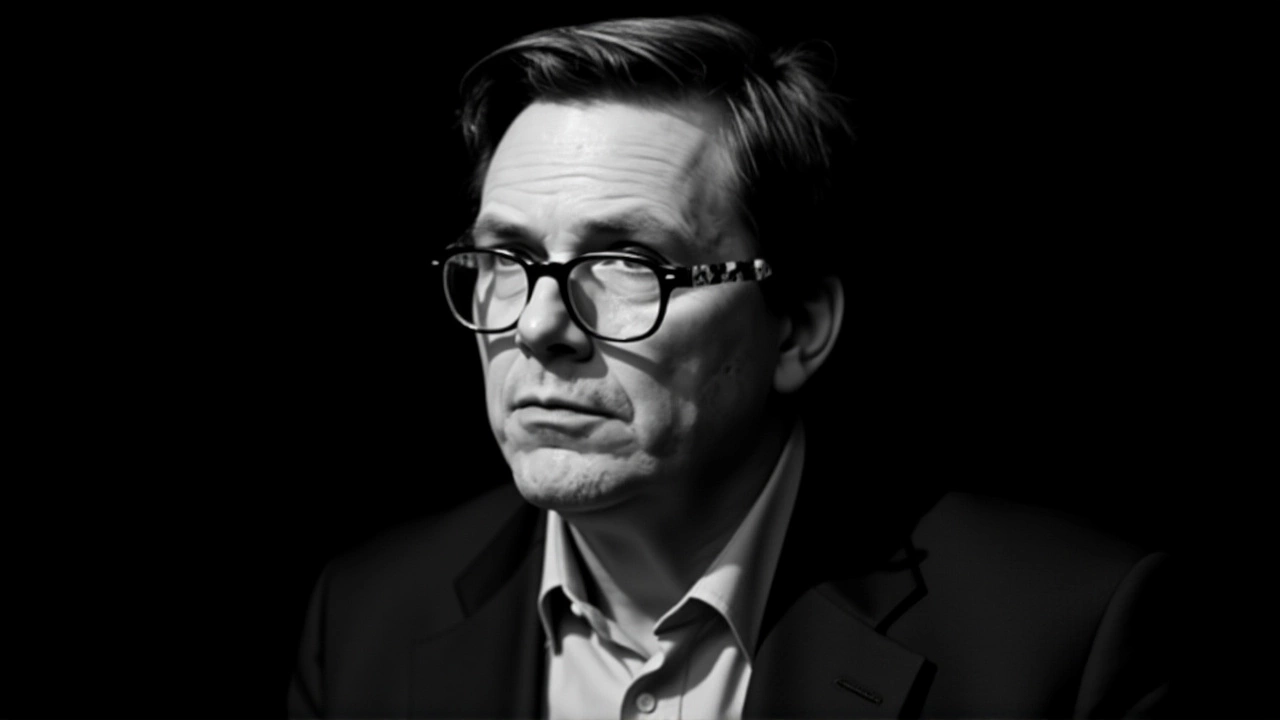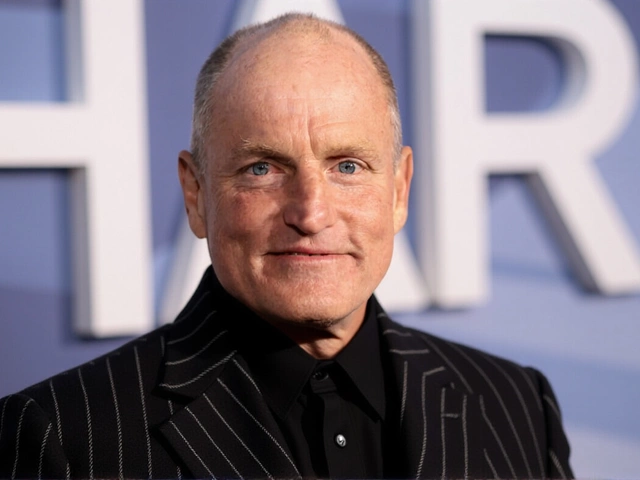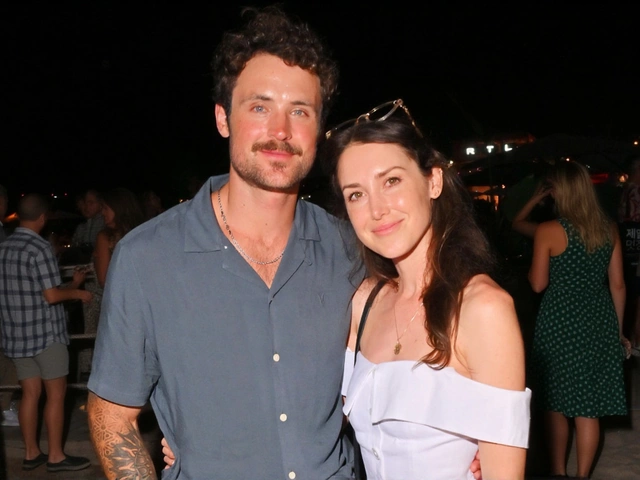On International Men's Day, November 19, 2025, the world will pause for a nine-hour global webcast from Sydney, marking the most ambitious international observance yet under the theme 'Celebrating Men and Boys.' The event, running from 3:00 PM to midnight Australian Eastern Daylight Time, will connect fathers, educators, health workers, and mentors across continents — not as a speech fest, but as a raw, real-time dialogue about what it means to be a man today. It’s not just about recognition. It’s about repair.
Why November? The Quiet Calendar of Masculinity
November isn’t just another month. It’s the quiet heartbeat of male experience. Movember kicks things off, turning mustaches into million-dollar fundraisers for prostate cancer and mental health. Then comes Men's Equality Month, a quieter, more persistent push for equal access to parental leave, counseling, and workplace protections. And on November 20, International Children's Day lands — a deliberate bookend, tying fathers, uncles, coaches, and mentors to the next generation. Together, these three events form a 48-hour cultural arc that no other month matches. This isn’t coincidence. It’s design.
The Webcast: More Than a Broadcast, A Movement
The 2025 webcast isn’t hosted by celebrities. It’s led by men who’ve been broken and rebuilt — like John Lund, a cover supervisor from a small English town who once dreamed of joining the RAF. After a fall broke four ribs, his path shifted. He found purpose not on the field, but in classrooms, where he now guides boys through the same emotional silence he once endured. He credits his father — a former Burnley footballer forced to retire at 17 — as his first role model. "He never talked about pain," Lund says. "But I saw it in his hands. In the way he’d wince lifting the laundry. I learned to hide mine too. That’s what we do." The webcast will feature similar stories: a Ghanaian teacher who started peer circles for boys after three students died by suicide in one year; a Finnish firefighter who speaks openly about PTSD; a Nigerian father who founded a men’s support group after losing his son to depression. These aren’t polished TED Talks. They’re testimonies.

The Six Pillars: What the World Isn’t Talking About
While the official International Men's Day website doesn’t list the six pillars publicly, their presence is felt everywhere. Based on years of global advocacy and confirmed by leaders in the movement, they include: promoting positive male role models, improving men’s health outcomes, addressing male suicide, challenging gender stereotypes, encouraging fatherhood engagement, and fighting discrimination against men in legal, educational, and social systems. The last one is the most controversial. In places like the UK and Canada, men are 75% of workplace fatalities, 80% of homeless populations, and face longer sentences for identical crimes. Yet these disparities rarely make headlines. The day forces a reckoning: equality isn’t a one-way street.
How the World Celebrates — And Why It Matters
From Sydney to São Paulo, schools are hosting "Men’s Circles" — no lectures, just chairs in a ring and a rule: no advice unless asked. In South Korea, workplaces are required to offer mental health check-ins for male employees. In the U.S., veteran organizations are partnering with barbershops — places where men already gather — to offer free counseling. Even in rural India, local NGOs are using WhatsApp groups to share mental health resources, bypassing stigma. And it’s working. A 2024 study by the Global Men’s Health Initiative found that regions with sustained International Men's Day campaigns saw a 22% increase in men seeking therapy within six months.
The numbers tell a brutal story: men account for nearly 80% of suicides globally. In the U.S., the rate is four times higher than women’s. In Russia, life expectancy for men is 12 years shorter than for women. Yet we still teach boys to "be tough," to "suck it up," to equate vulnerability with weakness. The 2025 webcast isn’t just about awareness. It’s about rewiring.

What’s Next? The Ripple Effect
After the webcast ends, organizers plan to release a global toolkit — downloadable, translatable, free — so every school, workplace, and community can host their own "Men’s Story Hour." The goal? To make November 19 not just a day, but a movement that lasts. Already, the European Union is considering a resolution to integrate International Men's Day into national school curricula. In Australia, the government has pledged $2.3 million to expand youth mental health services targeting boys aged 12–18. And in Nigeria, a new law is being drafted to require male employees to take at least five days of mental health leave annually.
It’s not about replacing feminism. It’s about expanding it. Equality doesn’t mean ignoring one group to uplift another. It means seeing all of us — fathers, sons, brothers, uncles — as human beings who need space to heal.
Frequently Asked Questions
Why is International Men's Day on November 19?
November 19 was chosen to align with the broader "masculine soul" calendar — beginning with Movember and ending with International Children's Day on November 20. This creates a 48-hour window to celebrate the bond between men and boys. The date also marks the anniversary of the first recorded modern observance in 1999 in Trinidad and Tobago, organized by Dr. Jerome Teelucksingh to honor his father’s legacy.
How does International Men's Day differ from International Women's Day?
While International Women's Day often focuses on historical inequality and systemic barriers faced by women, International Men's Day targets under-discussed issues like male suicide, fatherhood rights, workplace deaths, and emotional isolation. It doesn’t compete — it complements. Both aim for equity, but from different angles. Men’s Day asks: What are we doing to help men thrive, not just survive?
Who can join the 2025 webcast?
Anyone who cares about men and boys — fathers, teachers, coaches, therapists, community leaders, even those who’ve lost someone to suicide. Registration is open globally through internationalmensday.com. The webcast includes live translation in 12 languages and is designed for low-bandwidth regions. You don’t need to be an expert. You just need to listen.
What are the biggest challenges men face today?
Male suicide rates remain alarmingly high, with over 750,000 deaths annually worldwide. Men are less likely to seek help due to stigma. Workplace injuries and deaths disproportionately affect men. Fathers often lose custody battles and struggle with invisible emotional burdens. And in many cultures, traditional masculinity still equates strength with silence. These aren’t abstract issues — they’re daily realities.
Is International Men's Day only for men?
No. The day is for everyone. Women, non-binary people, and allies are vital to its success — as listeners, advocates, and change-makers. The goal isn’t to exclude, but to include men in conversations about health, parenting, and emotional well-being that have long been dominated by women’s voices. True equality needs all sides at the table.
How can I support International Men's Day in my community?
Start simple: host a coffee chat, share a personal story, or organize a men’s health screening at a local gym or church. Encourage schools to run "Men’s Story Circles" where boys can speak without judgment. Donate to organizations like Movember or The ManKind Project. And if you know a man who’s struggling — ask him, "How are you, really?" — and mean it. Sometimes, that’s all it takes.





